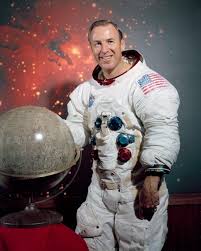
Introduction
Jim Lovell, a name synonymous with courage and problem-solving, is best known for his role as the commander of the Apollo 13 mission in 1970. This mission, which faced life-threatening obstacles, highlighted not only the intensity of space exploration but also the remarkable resilience of the human spirit. As nations and private companies push the envelope of space travel today, Lovell’s experiences provide valuable lessons on leadership and innovative thinking in crises.
Apollo 13: A Mission Like No Other
The Apollo 13 mission was launched on April 11, 1970, with the goal of landing on the Moon. However, on April 13, an oxygen tank exploded aboard the spacecraft, crippling the command module. Lovell and his crew, including pilots Jack Swigert and Fred Haise, were suddenly faced with a dire situation, where survival depended on their quick decision-making and the abilities of NASA’s ground control team in Houston. Lovell’s leadership played a crucial role as they navigated through a life-threatening ordeal.
Problem-Solving Under Pressure
Faced with dwindling power, fumes and a spiralling trajectory away from the Moon, Lovell and his crew had to find innovative solutions to multiple problems. They relied on improvisation and teamwork, using what they had on board, which included duct tape and a cardboard box, to adapt their systems for re-entry. This incident is often cited as a prime example of human ingenuity under immense pressure, illustrating how critical high-stakes problem-solving is to success in space and other fields.
Legacy and His Reflections
Reflecting on the mission, Lovell has maintained a focus on the lessons learned about teamwork, communication, and adaptability. In the years that followed Apollo 13, Lovell continued to inspire through public speaking engagements and authored the memoir “Lost Moon: The Perilous Voyage of Apollo 13,” which highlights the dangers and human factors in space exploration. Lovell’s message resonates today, especially as humanity prepares for further explorations to Mars and beyond.
Conclusion
Jim Lovell’s narrative is not just about a mission to the Moon that nearly ended in disaster; it serves as a testament to the unwavering spirit of human determination and ingenuity. As private and national initiatives expand the horizons of space travel, the tales of astronauts like Lovell echo the importance of resilience, adaptability, and collaboration. For aspiring astronauts and engineers, Lovell’s legacy remains a crucial guidepost for future challenges and adventures in the realm of space exploration.
You may also like

Tracy Morgan: A Journey Through Comedy and Resilience

Johnny Evans: The Resilient Defender Continuing His Legacy
